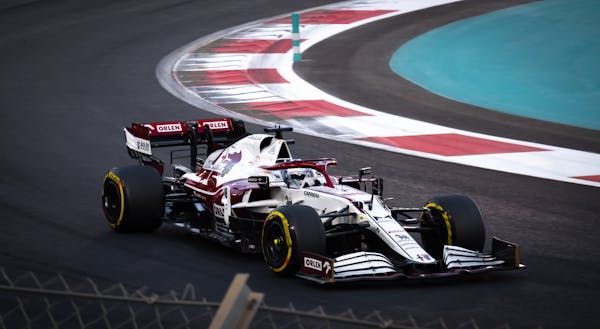The Allure of Formula 1: The Pinnacle of Motorsport Excellence
Formula 1 is often hailed as the pinnacle of motorsport, a high-octane blend of speed, precision, and technological innovation that captivates millions around the world. From the roar of the engines to the thrilling races on iconic circuits, F1 represents the epitome of racing excellence. In this blog post, we’ll dive into what makes Formula 1 so special, exploring its history, the science behind the sport, and the unique aspects that set it apart from other racing disciplines.
The History and Evolution of Formula 1
Formula 1’s roots stretch back to the early 20th century, but it officially became a world championship in 1950. The sport has evolved dramatically since then, with significant advancements in technology, safety, and global reach. From the days of classic car designs to the modern era of hybrid power units and aerodynamic sophistication, F1 has continually pushed the boundaries of engineering and performance.
The evolution of the sport is marked by legendary drivers, iconic teams, and unforgettable races. Figures like Juan Manuel Fangio, Ayrton Senna, and Michael Schumacher have left indelible marks on F1’s history, each contributing to the sport’s rich legacy of heroism and skill.

The Science of Speed
At its core, Formula 1 is a scientific marvel. The sport is a showcase of cutting-edge technology and engineering prowess. The cars are marvels of aerodynamic design, built to slice through the air with minimal drag and maximum downforce. Engineers and designers employ advanced computational fluid dynamics (CFD) and wind tunnel testing to perfect the car’s shape and performance.
The power units, which combine internal combustion engines with hybrid systems, represent the forefront of automotive technology. These engines not only deliver breathtaking speed but also incorporate complex energy recovery systems to optimize performance and efficiency. The precision and complexity of these machines reflect the extreme demands of the sport.
The Thrill of the Race
What sets Formula 1 apart from other racing series is the sheer thrill of the race. The combination of high-speed circuits, daring overtakes, and strategic pit stops creates a spectacle that keeps fans on the edge of their seats. Each race is a carefully choreographed ballet of speed, skill, and strategy.
The drama of race day is enhanced by the variable factors that come into play, from changing weather conditions to tire degradation. Teams must make real-time decisions and adjustments, adding layers of excitement and unpredictability. The strategic element, including pit stop timing and tire choices, can turn the tide of the race in an instant.
The Global Stage
Formula 1 is a truly global sport, with races held on five continents and a fan base that spans the globe. The championship includes some of the most iconic circuits, such as Monaco’s challenging street circuit, the high-speed straightaways of Monza, and the technical twists of Suzuka. Each venue offers a unique challenge, contributing to the sport’s diverse and captivating nature.
The international appeal of F1 extends beyond the races themselves. The sport attracts a global audience with its glamorous lifestyle, star-studded events, and the elite nature of its participants. The presence of multinational teams and drivers adds to the cosmopolitan allure of Formula 1.
The Human Element
While technology and speed are central to Formula 1, the human element is equally crucial. The skill, bravery, and resilience of the drivers are at the heart of the sport. Each driver must possess exceptional reflexes, strategic acumen, and the ability to perform under intense pressure. The personal stories of these athletes, their triumphs, and their challenges add depth to the spectacle.
Moreover, the team behind the scenes plays a pivotal role. The engineers, mechanics, strategists, and support staff work tirelessly to ensure that every aspect of the car and race strategy is optimized. The synergy between the driver and their team is essential for achieving success.
The Future of Formula 1
As Formula 1 looks to the future, the sport is embracing sustainability and innovation. The introduction of hybrid power units marked a significant step towards reducing the sport’s environmental impact. Future developments are likely to focus on further advancements in technology, as well as initiatives to make the sport more sustainable and accessible.
Additionally, Formula 1 is exploring ways to enhance fan engagement through digital platforms and immersive experiences. The sport’s ongoing evolution reflects its commitment to staying at the cutting edge of both technology and entertainment.
Conclusion
Formula 1 remains a mesmerizing blend of speed, technology, and human skill. Its rich history, scientific advancements, and global appeal make it a unique and exhilarating sport. Whether you’re a seasoned fan or a newcomer to the world of F1, the thrill of the race and the allure of the cars are sure to captivate and inspire.
So, the next time you watch a Formula 1 race, take a moment to appreciate the extraordinary blend of engineering marvels and athletic prowess that make the sport so captivating. Formula 1 is not just about racing—it’s about pushing the limits of what’s possible and celebrating the heights of human and technological achievement.









